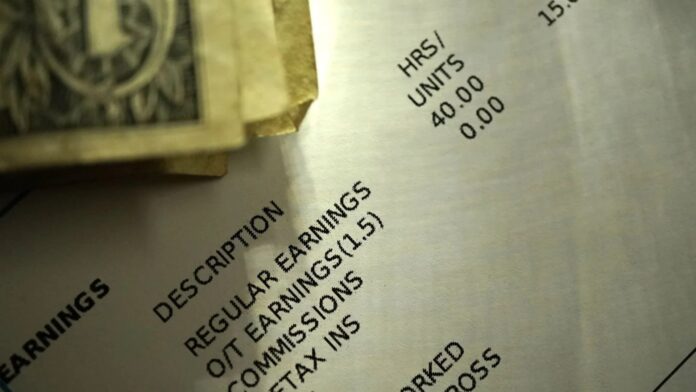The short answer: the skills that let you control cash flow, build credit, invest early, read your paycheck and taxes, negotiate income, and manage risk.
These aren’t just “nice to have” – they’re the difference between feeling reactive and feeling in charge of your money in your first real year after school.
Key Points
- Build a simple, automated cash-flow system so bills, savings, and spending are predictable.
- Protect your credit: pay on time, keep utilization low, and avoid unnecessary accounts.
- Start investing early (even small amounts) and never leave employer matches on the table.
- Learn to read your paystub and handle taxes to avoid surprises and keep more of what you earn.
- Negotiate your salary and review offers using total compensation, not just base pay.
- Cover major risks with the right insurance and an adequate emergency fund.
Make Cash Flow Boring (That’s a Good Thing)

When money is new and paydays are finally real, it’s easy to drift. A practical system beats a perfect budget:
- One income account, two purpose accounts. Route your paycheck into a main checking account, then automate transfers on payday: (1) bills/savings account for rent, utilities, loan payments, and automatic savings; (2) everyday spending account for food, transportation, and fun.
- Automate your priorities. Savings transfers should happen the day you’re paid – before money gets a chance to wander.
- Track, don’t obsess. A weekly 10-minute review of balances and upcoming bills prevents surprises without turning you into a spreadsheet monk.
Pro tip: predict your “true monthly” costs. Add irregular expenses (travel, gifts, car service, software renewals) into monthly amounts so they’re funded ahead of time.
Money skills compound like investments. If you want an approachable, ongoing primer, consider subscribing to thoughtful financial education resources that break down real-world decisions, not just theory, so you’re nudged to improve a little each month.
Credit and Debt: Small Habits, Big Impact

Credit influences your apartment application, insurance rates, even background checks in some fields. The engine behind a strong score is boring consistency: on-time payments and low utilization.
Autopay at least the minimum on every credit card to protect payment history; then pay statements in full whenever possible. Keep balances well under your total limit so you look low-risk.
If you carry balances, choose a payoff plan you’ll actually follow:
- Avalanche (highest APR first) saves the most interest.
- Snowball (smallest balance first) delivers quick wins that keep you motivated.
Either works – consistency beats perfection.
Save and Invest Early (Even If It’s Just $50)
You’ll never be “too early” to start. The first dollars carry the most compounding power.
- Emergency fund: build to 3–6 months of essential expenses. Start with one month as a near-term target in a high-yield savings account.
- Free money first: if your employer matches retirement contributions, contribute at least enough to capture the full match. That return is hard to beat.
- Keep investing simple: broad, low-cost index funds (through a retirement plan or a brokerage) let you capture market growth without becoming a stock picker.
- Automate contributions: small, scheduled transfers reduce decision fatigue and market-timing anxiety.
Note: If you have high-interest debt (e.g., double-digit APR), prioritize paying it down while still capturing any employer match – then resume increasing investments.
Decode Your Paystub and Taxes

Your paycheck is a map. Read it. Know your gross pay, pre-tax deductions (retirement, health accounts where available), taxes withheld, and net pay. The wrong withholding setup can leave you with a surprise bill or an avoidable overpayment.
Revisit forms after big changes – new job, raise, moving, or switching benefits. Keep a simple digital folder for receipts, tuition records, and donation confirmations so tax season takes an hour, not a weekend.
Set a calendar reminder for tax deadlines and keep a simple folder (digital is fine) for receipts, tuition records, and donation confirmations. Future-you will be grateful.
Negotiate Income and Evaluate Offers Like a Pro
Your first salary sets a trajectory. A few thoughtful steps can add thousands over the next decade.
- Research a real range using multiple sources and adjust for location, company stage, and role scope.
- Total compensation matters: compare base pay, bonuses, equity, benefits, and stipends (learning, wellness, commute).
- Practice your ask: a calm, evidence-based request (“Given the scope and market data, I was targeting X–Y”) is both professional and effective.
- Keep the door open: if base can’t move, ask about a signing bonus, earlier review cycle, or professional development budget.
Quiet habit: track your wins and outcomes monthly. When review season comes, you’ll have receipts.
Manage Risk: Insurance and the “Oh No” Fund

You don’t need every policy – but you need the right ones.
- Health insurance: even a high-deductible plan beats no coverage. One accident can erase years of savings.
- Renters insurance: inexpensive, covers your stuff and often personal liability.
- Life and disability: if others rely on your income, or if your job’s group disability is weak, explore coverage.
- Beneficiaries and passwords: set beneficiaries on financial accounts and maintain a secure, shared method for critical logins.
Pair this with your emergency fund and you’ve covered most of life’s financial plot twists.
Decision Frameworks for Everyday Money Choices
Knowing how to think beats memorizing tips. Use these quick lenses:
- Total Cost of Ownership (TCO): purchase price + maintenance + subscriptions + time. That “cheap” device with pricey refills? Not so cheap.
- Opportunity Cost: choosing A means not choosing B. Saying yes to a daily rideshare might mean saying no to weekend trips.
- Payback Period: for courses, certifications, or tools – how long until the investment pays for itself in higher income or saved time?
- Default to Reversible Decisions: when in doubt, take the option you can unwind (monthly plan before annual, trial before purchase).
A 90-Day Starter Plan
| Timeframe | Actions |
|---|---|
| Week 1–2 |
|
| Week 3–4 |
|
| Month 2 |
|
| Month 3 |
|
These steps aren’t flashy, but they stack – and momentum is everything.
Bottom Line
After graduation, the most valuable financial skills are the ones that make your money predictable, protect your credit, start compounding early, minimize tax waste, grow your income, and guard against big risks.
You don’t need perfection – you need a reliable rhythm you can keep when life gets busy. Start small, automate the boring parts, and keep learning. Your future choices (housing, travel, career pivots, family) will all be easier because you built a steady financial foundation now.







